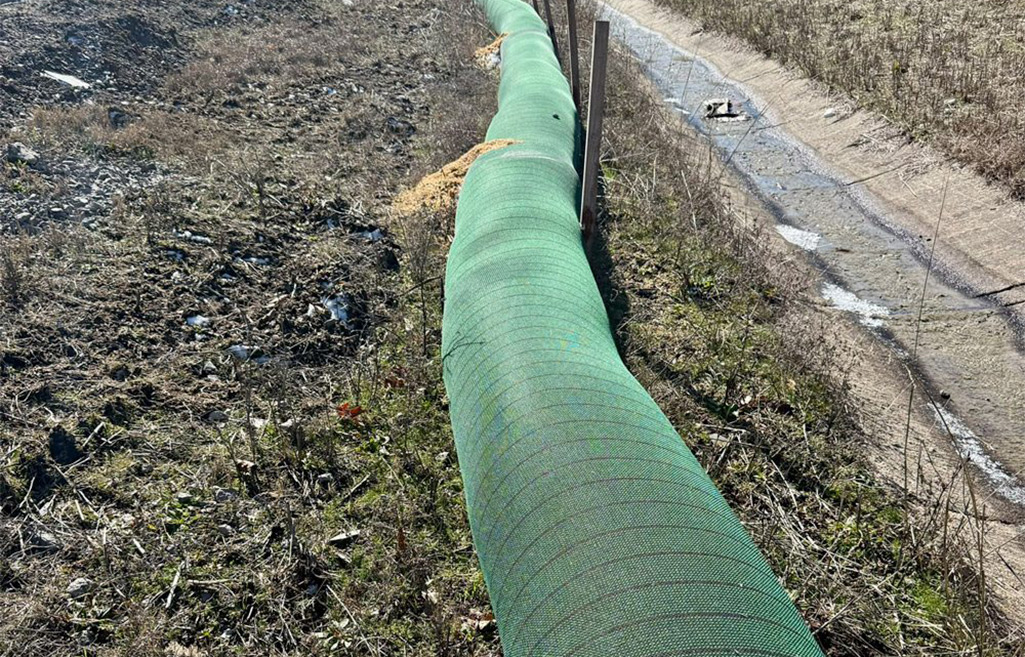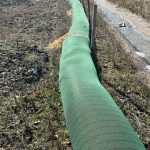- Home
- About Us
- Explosives Services
- Environmental Materials
- Hardscapes & Outdoor Living
- Industries
- Applications


Filter socks, also known as silt socks, are flexible, tubular devices filled with organic materials such as compost or wood chips. They are designed to filter stormwater runoff while trapping sediment and preventing pollutants from entering water bodies. These innovative devices are widely recognized as an effective best management practice (BMP) for sediment control and stormwater management.
Features:
Benefits: